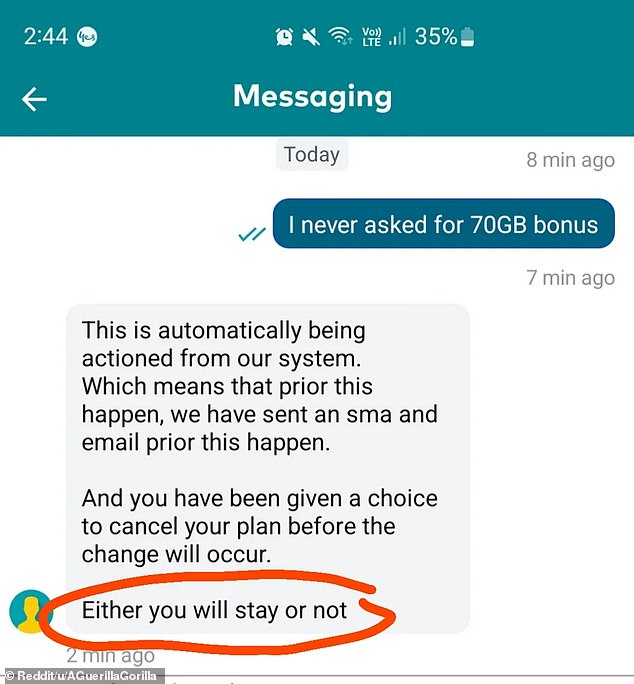But the undignified sight of Communications Minister Michelle Rowland pleading with Optus to give its customers more information means Bayer Rosmarin is likely to face her second political firestorm in a year, after Optus was scarred by one of the biggest public cyberattacks this country has seen in late 2022.
With all services restored on Wednesday afternoon, Bayer Rosmarin was unable to offer much in the way of explanation for the outage, citing a technical network fault of such complexity that “there’s no soundbite that’s going to do it justice”.
But she was deeply apologetic for the episode, and promised to share the results of a “root cause analysis”.
“We’re a critical infrastructure provider and we understand how important our connectivity is,” she said. “On every other day than today, we offer a fantastic and reliable service. And so we’re very disappointed that today we let our customers down. We obviously don’t plan for that to occur, we plan for it not to occur and we will get to the bottom of every possible learning we can get out of this experience.”
But Bayer Rosmarin pushed back on suggestions that this was one of the biggest such outages Australia has seen, or even that such issues are unusual for operators of such a large and complex network.
“We’re very, very sorry that it happened. But I don’t think it’s something unusual in the grand scheme of things when you’re operating a critical infrastructure,” she said.
Bayer Rosmarin also stood her ground on the Optus communications response, which appeared wanting on Wednesday morning, as both Rowland and Telecommunications Ombudsman Cynthia Gebert said on radio they had heard about the outage via the media. After last year’s hack, you’d think Optus would be well-versed in crisis management. But if lessons had been learned on that score, it wasn’t evident on Wednesday.
But Bayer Rosmarin insisted the Optus team was rightly focused on fixing the issue, and was limited in what it could say about the outage.
“Having a message saying the service is out and we don’t know when it will be restored, which was the truth, is not very satisfying,” she said. “So I don’t think it’s a problem with the communications, it’s a problem that customers wanted a different message.”
There might be a few politicians and regulators who have a different view. But customers also have every right to be disenchanted with the handling of this mess.
Yes, the message Optus and Bayer Rosmarin could have given on Wednesday morning would have been unsatisfying for those affected. But customers understand there will be outages. Hearing the CEO or Optus executives or spokespeople on the front line may have at least given them confidence that Optus was on top of the problem, and fully accountable.
At heart, this is a question of confidence.
With last year’s hack still fresh in the minds of customers, Optus could ill-afford the sort of high-profile problem it is now facing. The company’s poor communications response at the start of Wednesday, and its lack of a detailed explanation for the problem at the end of it, are likely to compound the erosion of trust from the hack.
And Optus can’t afford more slip-ups in the ultra-competitive telco market. Its earnings before interest and tax in the June quarter slipped 5.5 per cent, with revenue up just 1.1 per cent, which parent company Singapore Telecommunications blamed on “the challenging market conditions from competitive pricing and a weakening in consumer sentiment”.
Bayer Rosmarin has promised transparency on the cause of this outage, and must deliver. Optus’ decision not to release an independent review of the cyberattack – despite the CEO’s promises to do so – was a mistake and this time around nothing less than a full and public explanation will suffice.
And if Optus won’t provide it, then Rowland should make sure the government does.



